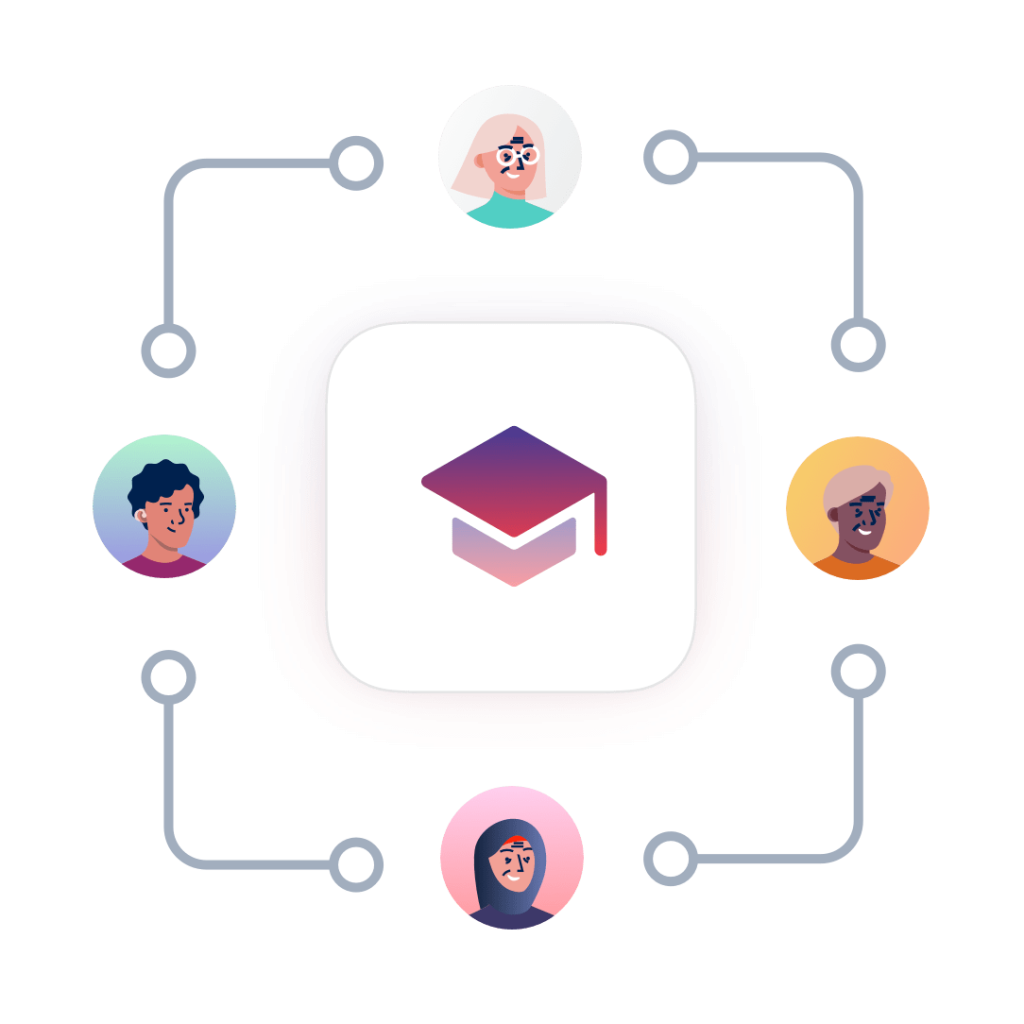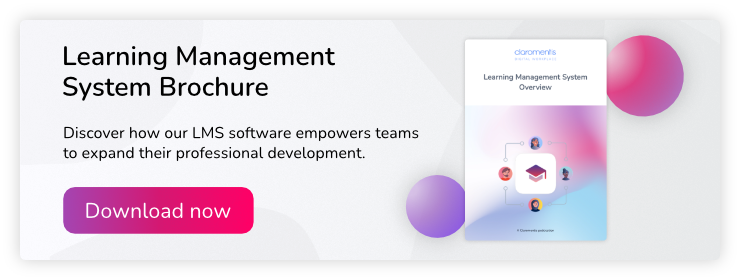Today’s employees are more aspirational than ever, craving opportunities to further their knowledge and skills that will give them greater responsibility and enhanced rewards. However, while changing jobs may be second nature to some, the migration of staff to other companies can be difficult for small businesses as hiring new staff is time-consuming and expensive, and a lack of continuity and staff retention could adversely affect business growth.
Establishing a culture of learning and development offers tangible benefits for both employees and small businesses – of which a Learning Management System (LMS) should be a fundamental part.

What Is A Learning Management System?
A Learning Management System is a Cloud-based software platform that facilitates the delivery, monitoring, and administration of staff training programs and courses. In simple terms, it allows training materials to be delivered to different audiences within your business, including online courses, live instructional teaching, social learning, certification and compliance training, and sales enablement.

As it is hosted in the Cloud, an LMS can be accessed from multiple locations for in-house or remote training. Instead of being isolated in a separate system, an LMS is most effective when it is aligned with other elements of the digital workspace, including knowledge bases, news, and document management.
How An LMS Can Shape A Learning Culture
An important benefit of an LMS for small businesses with restricted cash flow is that it reduces costs by centralizing training and development – thereby saving the cost of travel, coaches, or mentors, and allowing managers to track each employee’s progress to ensure the best value.
However, a Learning Management System also contributes to a positive learning culture, which is crucial in achieving continuous improvement, improving employee engagement, and helping the business to stay abreast of change in its sector. Here’s how:
1. Enables Learners To Stay In Control
A program of continuous professional development that is an intrinsic part of the business environment helps staff to feel that they are in control of their performance and their careers. Rather than having to seek out training opportunities, staff can learn at their own pace alongside their daily responsibilities, instead of through compartmentalized activities that appear disconnected from their work.
2. Promoting Staff Engagement
Staff who are engaged in their work and believe their employer takes their professional development seriously are more likely to be happier and, therefore, less likely to look elsewhere for alternative employment. Instead of silo learning, in which employees train alone and retain new knowledge instead of sharing it across the organization, an LMS can stimulate collaboration through shared learning projects, team tasks, and incentives such as leaderboards and prizes.
3. Improving Productivity
A positive learning culture can increase overall productivity and performance and make a small business more competitive in a challenging economic landscape. Employees are more likely to possess the skills to adapt to changing circumstances, respond more quickly to address customers’ needs, and even bring innovative products to market faster.
4. Better Compliance Training
Finally, an LMS is a more suitable choice for compliance or regulatory training as it provides a clear audit trail and assessment accountability. This is beneficial when businesses are providing accredited or certificated training, as they’ll be able to document each employee’s progress and achievements, adding an important layer of credibility to the awards. This is especially true in Claromentis where compliance courses can be linked to relevant e-forms and workflows and also to required policies and procedures.
Arrange A Free LMS Demo Today

At Claromentis, our integrated Learning Management System delivers outstanding functionality and accessibility, as all features and tools are centrally available and aligned with other areas of your digital workspace. Including the ability to automatically change the permissions or interface of the system for that user when a course is completed which can be particularly important in onboarding and when passing a course linked to job level and responsibilities.
To arrange your free, no-obligation demonstration of our innovative LMS, please contact us today.





